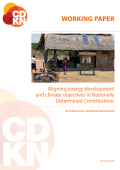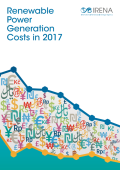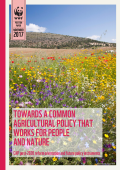
The paper Aligning Energy Development and Climate Objectives in Nationally Determined Contributions looks at how four specific developing countries are aligning their energy policies with their NDCs, or missing key opportunities to do so, and they raise questions about how governments could do things differently.

This policy brief is the first in a series on the circular economy and Canada. It provides an introduction to the circular economy concepts and landscape, geared towards for both government and business audiences.

This cost report highlights the latest trends for each of the main renewable power technologies, based on the latest cost and auction price data from projects around the world.

The report Transport in Nationally Determined Contributions (NDCs) summarises case study findings from rapidly-motorising countries, including Bangladesh, Colombia, Georgia, Kenya, Nigeria, Peru and Viet Nam. It highlights the shared challenges they face in developing and delivering greenhouse gas mitigation actions within expanding transport sectors. These include the impact that a lack of transport data is having on sectoral climate action and the need for increased buy-in from key transport stakeholders to achieve countries’ climate change commitments. The report also highlights the need to build climate change expertise within transport authorities, and for greater alignment between NDCs and national transport sector strategies.

In the position paper Towards A Common Agricultural Policy that Works For People and Nature WWF therefore calls for the CAP to be re-designed in order to support the necessary transition in agricultural practices.
